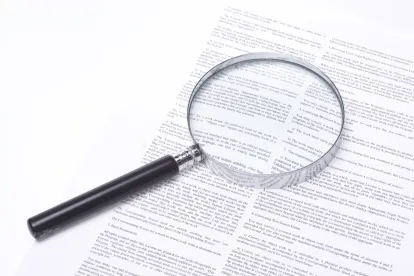Contracts with customers, vendors, or other parties are a normal part of doing business. Most businesses are party to numerous contracts and although it may seem that contracts are fairly standard documents, the reality is that each individual document is its own legally binding arrangement. The parties to contracts often customize the arrangements to suit the particular business conditions or economics of the relationship.
Most businesses neither fuss over nor spend a lot of time on the contract provisions that allocate risk between the parties (outside of the major issues of payment and performance). During extraordinary times, such as the current COVID-19 pandemic, business owners may not realize that the “roadmap” to their relationships with their business partners is usually in the often unread details of their business contracts.
Just as the Federal Emergency Management Agency (FEMA) provides guidance to prepare individuals, families and their households for natural disasters or political unrest, a well-prepared business owner has created a plan of their own for how their business will respond to unforeseen situations. Understanding how a business might be impacted by the contracts they are party to should be part of that planning. Even now, as we continue to face uncertainty as to when businesses will fully reopen as the pandemic begins to recede, it is not too late to assess how this may impact your contractual relationships.
Here are ideas and important things to keep in mind while reviewing your contracts:
-
Take stock of your most important contracts. Where are they located? Are they easily accessible? When was the last time they were reviewed? Are you readily familiar with the provisions in each? Now is a perfect time to organize those contracts into a system that allows those in your organization to quickly refer to them as needed.
-
Pay special attention to contracts with customers or vendors which are or may be impacted the most heavily by the economic uncertainty surrounding the COVID-19 pandemic.
-
Several remedies are available to contracting parties to enable them to excuse performance or protect themselves in a situation such as an epidemic, civil unrest or natural disaster. The “force majeure” clause is a well-known provision included in many contracts that excuses performance during certain unforeseen and highly adverse situations. Included in the definition of force majeure is often a laundry list of events where a party’s performance obligation is excused. I am seeing more efforts by parties in recent draft contracts to specifically exclude pandemics such as COVID-19 from the scope of force majeure, just as contracts written after the September 11, 2001 terrorist attack often specifically excluded terrorist events. However, most force majeure clauses have a specific exclusion regarding payment obligations, which require the paying party to make payment to the other party regardless of the occurrence of a force majeure event. It is important to review your contract to determine which contain force majeure clauses and under what particular circumstance a party is excused from performance. If you are currently negotiating a contract, pay particular attention to the force majeure clause and how that may affect future unforeseen circumstances.
-
Rights of termination and damages for breach are often clearly spelled out in contracts. Be familiar with those triggering events and any provisions providing for damages, including liquidated damages. Keep in mind that the normal business of the state court system has also been affected by this pandemic, so your ability to obtain relief or damages will be limited or delayed for the foreseeable future. In light of that, alternative dispute resolution (such as mediation or arbitration), if permitted under the contract or as the parties otherwise agree, may be your best bet to get a prompt resolution.
-
Be careful about entering into any course of business that deviates from the written terms of the contract. This comes into play in two areas in particular. First, if the parties agree to or engage in a course of practice that deviates from the written terms of the contract, it may be difficult for a party moving forward to enforce terms of the contract as written following that deviation. The second scenario includes one of the parties waiving their right(s) in the contract (usually for a reason that makes good business sense in the current state of affairs). Businesses will want to make sure that any departure from the written contract during the current pandemic, or otherwise, does not become the “new normal” and undercut important legal rights within their contract.
-
If the contract is silent on a particular aspect, the answer can often be found in statutory law. The Uniform Commercial Code (the “UCC”) provides “standard” rules for purchases and sales, leases, and other transactions.
Keep in mind that there is no requirement that a contract that is not beneficial to either or all parties be rigidly adhered to if the parties are willing to amend the contract or enter into a new contract altogether. The key to staying afloat or even thriving in business in general, but especially during extraordinary times such as these, is flexibility and willingness to adapt. Remember that contracts which have been altered to account for an event such as the COVID-19 pandemic may not be as sound once the economy bounces back, so do some mental visioning about where your business needs to be when returning to “business as usual” so that your contracts put you where you want to be.
If you have any concerns with how your contracts are being interpreted or administered during the COVID-19 pandemic, an attorney can be an important resource to prevent loss and ensure the continuing health of your business.




 />i
/>i
